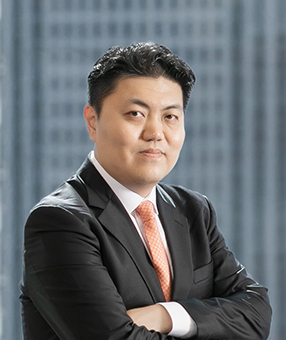On February 16, 2024, the European Commission (the “EC”) announced that it launched its first in-depth investigation into a public procurement undertaken in Bulgaria, involving CRRC Qingdao Sifang Locomotive Co., Ltd. (“QSL”), a subsidiary of the Chinese state-owned CRRC Corporation Limited (“CRRC”), under the Foreign Subsidies Regulation (the “FSR”) (i.e., Regulation (EU) 2022/2560). CRRC is the largest state-owned railroad car and equipment manufacturer in China. However, on March 26, the EC announced that it was closing its in-depth investigation as QSL had withdrawn its bid.
This was the very first in-depth investigation under the FSR launched by the EC. Therefore, any Korean company seeking entry into the European Union (the “EU”) market through an M&A or a public procurement should voluntarily inspect its history of government subsidies received and monitor the progress of the relevant cases.
|
1. |
Overview of FSR |
|
2. |
Details of In-Depth Investigation Against CRRC |
To mark the 100th day of implementing the FSR, the EC disclosed statistics related to its new legal tool. According to the EC, since the initial imposition of the notification obligation in October, it has received approximately 50 notifications related to M&A transactions and about 100 notifications related to public procurement transactions. In order to facilitate the review of these notifications and the enforcement of the FSR, the EC plans to (i) expand the responsible division within its ranks (i.e., from seven people to forty), and (ii) to install the “Directorate K” within the Department of Competition (the “DG COMP”) to oversee the entire enforcement process. In light of the higher-than-anticipated influx of notifications, the EC has announced its intention to expand its enforcement capabilities to address these challenges. As a result, the regulatory scheme under the FSR is expected to become more robust in the future.
Moreover, apart from the suspension of a deal during an investigation or the prohibition of a deal as a result of an investigation, the opening of an investigation itself can be a burden for companies, as in the abovementioned case, and may lead to a decision to withdraw from a deal or bidding. Commenting on the case, Thierry Breton, the EU’s Commissioner for the Internal Market, said, “In just a few weeks, our first investigation under the Foreign Subsidies Regulation has already yielded results. We will continue to take all necessary measures to preserve Europe’s economic security and competitiveness.”
Accordingly, any non-EU business planning to engage in business combination transactions or participate in public procurement tenders in the EU should perform an internal audit to collate and tabulate the subsidies that it received from Korea or other governments worldwide, and keep track of the investigations in progress and the enforcement examples of the detailed rules within the FSR. Moreover, under the FSR, even those transactions not meeting the pre-closing notification obligations can be called in by the EC ex officio. Therefore, companies’ investment strategies and schedules need to take into account the possibility of an investigation by the EC under the FSR, in order to prevent any delays in the planned closing date or bidding dates resulting from FSR notifications or investigations.










